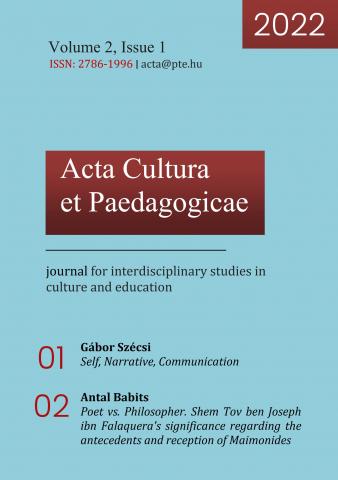Self, Narrative, Communication
DOI:
https://doi.org/10.15170/ACEP.2022.01.01Kulcsszavak:
AngolAbsztrakt
This article examines how the concept of narrative crystallized within the framework of the philosophy of mind, cognitive linguistics and narrative psychology can shed light on the role of intentional state attribution in the process of communication. The primary aim of this investigation is to shed new light on the presupposition that narrative can be regarded as a tool of communicating representations of intentional relations and events between individuals by verbal and nonverbal means. The paper argues that by illuminating the meaning-creating role of conceptual relationships emerging within narrative frameworks, we can also grasp how to attribute intentional
states (eg. intention, belief, desire, hope, or fear) to our communication partners using narrative-oriented interpretation schemes, and thus to infer their intentions in communication. Based on this tenet the present article suggests possible answer to questions like what basic types of narratives determine the effectiveness of everyday communication processes; and how this concept-meaning connection embedded in narrative structures can become a factor of self-creation in everyday discourse.

